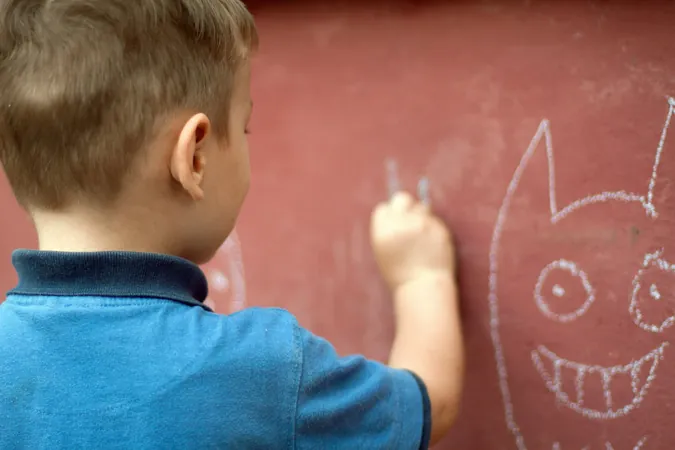
Surprising New Study Reveals Childcare Doesn’t Harm Mental Health, Even for Kids in Tough Situations
2024-12-17
Author: Daniel
Groundbreaking Study Findings
A groundbreaking study has revealed that sending children to childcare outside the home may not have a significant impact on their mental health, even for those who face early life challenges such as parental mental illness or financial difficulties at home. This compelling research was published in the esteemed journal Development and Psychopathology.
Context of Childcare Use
In the United States, a large number of children under the age of five spend time in childcare settings. Researchers were eager to determine whether attending these facilities affected the mental health of children, particularly those who have experienced early adversity.
Parent Concerns
Dr. Michelle Bosquet Enlow from Boston Children's Hospital and Harvard Medical School expressed a common concern among parents: “With the widespread use of childcare, many parents worry that sending their children to such facilities might lead to negative outcomes. This uncertainty can create feelings of guilt and anxiety for those who choose childcare.”
Study Design and Methodology
The comprehensive study assessed various types of childcare arrangements, including center-based care, home-based non-relative care, and care given by relatives. Prior research on this topic has yielded mixed findings; while several studies highlight the positive aspects of childcare, others indicate potential risks for developmental setbacks.
Implications for Public Policy
Dr. Enlow noted, "Understanding the role of childcare in children’s development, especially for those dealing with additional hardships, is crucial for shaping effective public policies that ensure healthy outcomes for children."
Key Findings
Key Findings: Children who experienced early life adversity exhibited heightened levels of anxiety, depression, aggression, and hyperactivity symptoms. Surprisingly, the study found no relationship between childcare attendance and either an increase or decrease in mental health symptoms, even among children facing adversities. Notably, the number of hours spent in childcare did not correlate with poorer mental health outcomes, even for children under psychosocial stress and economic strain.
Study Cohort and Measurements
The research involved 2,024 parent-child pairs from three diverse study groups within the ECHO (Environmental influences on Child Health Outcomes) Cohort, including participants recruited from hospitals in North Carolina, Pennsylvania, and Tennessee, as well as adoption agencies throughout the U.S. Researchers meticulously measured the childcare experiences of children from birth to three years of age while also evaluating parental factors such as childhood adversity, mental health issues, and educational background. At ages three to five and a half, researchers assessed the children’s mental health regarding symptoms of anxiety, depression, and aggression.
Conclusion
The implications of this study are significant. Parents may feel reassured that utilizing childcare services does not inherently jeopardize their children's mental health, despite the added stressors some families might face. This research could help alleviate parental guilt, enabling them to make informed decisions about their children’s care and encouraging positive developmental environments.
Future Research Directions
As experts continue to unravel the complexities of child development, this study presents a refreshing perspective that could transform the conversation around childcare and its impact on mental health.


 Brasil (PT)
Brasil (PT)
 Canada (EN)
Canada (EN)
 Chile (ES)
Chile (ES)
 España (ES)
España (ES)
 France (FR)
France (FR)
 Hong Kong (EN)
Hong Kong (EN)
 Italia (IT)
Italia (IT)
 日本 (JA)
日本 (JA)
 Magyarország (HU)
Magyarország (HU)
 Norge (NO)
Norge (NO)
 Polska (PL)
Polska (PL)
 Schweiz (DE)
Schweiz (DE)
 Singapore (EN)
Singapore (EN)
 Sverige (SV)
Sverige (SV)
 Suomi (FI)
Suomi (FI)
 Türkiye (TR)
Türkiye (TR)